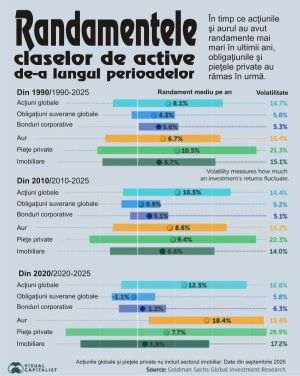Whether it meant to or not, the National Anti-Corruption Department was a major player in the offer for the listing of Digi Communications, the parent company of RCS&RDS.
The DNA announced on Friday, during the DIGI offer, that it had begun prosecution against Ioan Bendei, vice-president and Executive Administrator of RCS&RDS, for money laundering and bribery, and against Mihai Dinei, board member of the company, for complicity in offering bribes and in money laundering.
But the DNA didn't say anything, on Friday, about the prosecution of RCS&RDS. On Monday, DIGI announced, through an amendment to the prospectus, that RCS&RDS is also a suspect in the same case, and thus it allowed investors to withdraw from the IPO, until yesterday, at 17:00. The DNA did not explain why it didn't officially announce the criminal prosecution of RCS&RDS.
Given that RCS&RDS represents almost the entirety of the activity of Digi, the investigation represents a problem, because internal regulations do not allow some of the institutional investors to participate in this offer anymore.
For example, the European Bank for Reconstruction and Development (EBRD) had approved, on April 26th, its participation in the offer, but had made it subject to the company drawing up an annual report concerning the social and environmental aspects and the company making commitments to fight bribery and corruption.
Also, the intermediaries of the offer, especially Citigroup and Deutsche Bank (each having 40% of the offer) have pledged to buy the stock on offer themselves, but on certain conditions. One of those conditions was that no significant negative change would occur.
Apparently other institutional investors have similar criteria, and some sources are saying that even though last week the subscription on the retail investors tier had exceeded 200%, now, the DNA investigation pressured the price downwards, which, in the even the offer concludes successfully, could be nearer to the lower end of the price range. Subscription on the big tier were made at prices in the 38 - 56 lei range.
Intermediaries and sellers are going to announce the price of the offer depending on the subscriptions on the same tier.
In the case of retail investors, which have been allocated 15% of the offer, the effect of the DNA investigation was seen directly, even though it wasn't a spectacular one. The last two days of the offer saw subscriptions being cancelled. Yesterday, at 17:00, the unguaranteed retail segment has a subscription of 74,968,974 million shares (2749%), down from 2796% on Monday. The oversized demand came on the back of the use of bank guarantee letters, granted by the intermediaries, a practices which some brokers and investors criticized, as they claimed it skewed the real demand. Small investors have placed money that together amount to approximately 1 billion Euros. "This is an artificial increase of the demand and it is immoral", an investor told us, who thinks that the Financial Oversight Authority (ASF) should intervene, to check whether the money behind those orders actually existed. The fight between retail investors came as they were offered a 7% discount on subscriptions in the first five days of the offer.
Considering, however, that DIGI Communications is a company registered in Holland, the prospectus of the offer and its fall under the supervision of the Dutch Oversight Authority. The ASF informed us that all it can if it finds irregularities is to notify the Dutch authority or the European one (ESMA).
On April 28th, a group of shareholders of Digi Communications launched an offer to sell 21,744,108 shares, for an amount ranging between 826.27 million lei and 1.21 billion lei.










































